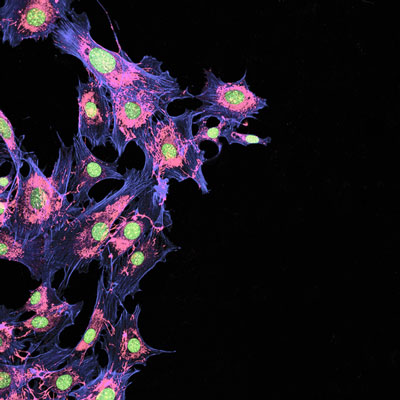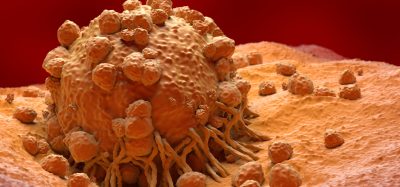ALK1 protein may play a role in breast cancer metastasis
Posted: 15 June 2015 | Victoria White
Scientists from Lund University have discovered that expression of ALK1 is significantly associated with the incidence of breast cancer metastasis…

Scientists from Lund University have discovered that expression of ALK1 is significantly associated with the incidence of breast cancer metastasis.
Metastatic disease is the cause of 90% of cancer-related deaths. Knowing this, Kristian Pietras, PhD, the Goran and Birgitta Grosskopf professor of molecular medicine at Lund University, set out to learn more about the metastatic process and to find new cures to inhibit disease spread.
He explained that in order for a tumour to spread, a cancer cell must detach and traverse the vascular wall to escape into the blood stream, exit the vasculature to enter the metastatic site, and colonise the new tissue. The fact that the process of escape into and from the vasculature is regulated implies that it is possible to use drugs to block this process.
Pietras and colleagues used multiple mouse models of breast cancer; tumour samples from 768 patients in a population-based, nested case-control study; and breast cancer gene-expression data from The Cancer Genome Atlas, to understand the role of ALK1 in breast cancer metastasis and test an ALK1 inhibitor.
High levels of ALK1 in the breast tumour vasculature may be a prognostic biomarker for metastatic disease
Using multiple mouse models of breast cancer, Pietras and colleagues found that a mouse version of the ALK1 inhibitor dalantercept prevented metastatic dissemination and that combination therapy with dalantercept and the chemotherapy docetaxel was effective in preventing the spread of the primary breast tumour to the lungs.
Next, the researchers analysed gene-expression patterns in tumours from 768 patients in a population-based, nested case-control study. This analysis showed that expression of ALK1 was significantly associated with the incidence of metastatic disease. In order to further validate their findings, Pietras and colleagues analysed breast cancer gene-expression data from The Cancer Genome Atlas and found that ALK1 expression correlated with the expression of well-known endothelial markers and that higher levels of ALK1 expression were an independent prognostic factor for poor survival in breast cancer patients.
In an interview, Pietras said, “Our results suggest that the presence of high levels of ALK1 in the breast tumour vasculature is a prognostic biomarker for metastatic disease. Moreover, our work encourages clinical testing of drugs blocking ALK1 in breast cancer with prevention of metastatic dissemination as the primary outcome. We are currently performing therapeutic studies with dalantercept in models of breast cancer in order to pinpoint the precise therapeutic regimen and disease stage at which the treatment is the most effective.”
The study is published in the journal Cancer Research.
Related topics
Biomarkers, Gene Testing, Oncology
Related conditions
Breast cancer
Related organisations
Cancer Research






